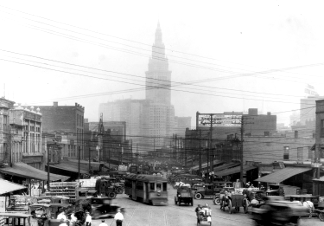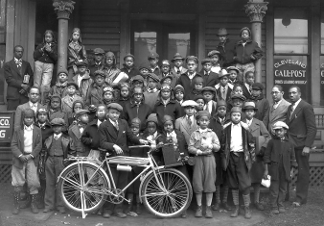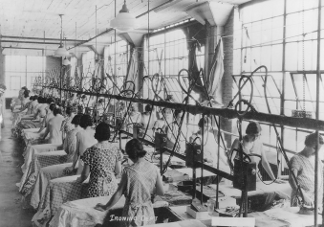RUTHENBERG, CHARLES (9 July 1882-3 Mar. 1927), prominent in the Cleveland Socialist and, later, Communist parties, was born in Cleveland to August and Wilhelmenia (Lau) Ruthenberg. He was educated at DYKE COLLEGE, and worked as a salesman and bookkeeper for the Cleveland office of Selmer Hess Publishing Co. of New York. Ruthenberg first considered himself a Progressive, backing TOM L. JOHNSON†, however after reading Marx's Das Kapital, he became committed to the Socialists and by 1912 was a militant party member. As leader of the local Socialist party, Ruthenberg was an effective organizer and perennial political candidate. He ran for mayor 4 times (1911, 1915, 1917, 1919); for Ohio governor in 1912; for the U.S. Senate in 1914; and for the U.S. House of Representatives in 1916 and 1918. By 1917, Ruthenberg had given up his job to devote himself more to political work, and had also moved to the radical left of the party. After the Bolshevik Revolution, he switched to the COMMUNIST PARTY, becoming executive secretary of the Communist Party of America. Ruthenberg's last major political action in Cleveland was leading the May Day Parade of 1919 which resulted in a riot and his arrest on a charge of assault with intent to kill (see MAY DAY RIOTS).
Ruthenberg married Rosaline Nickel and they had one son, Daniel. Ruthenberg died suddenly in 1927 of a ruptured appendix. His body was cremated in Chicago, and his ashes sent to Moscow and interred in the Kremlin Wall. Ruthenberg and John Reed were the only American Communists so honored by the Soviet Union.
Last Modified: 22 Jul 1997 01:32:49 PMJohnson, Oakley C. The Day is Coming: The Life and Work of Charles E. Ruthenberg, 1882-1927 (1957).
- Related Article(s)









